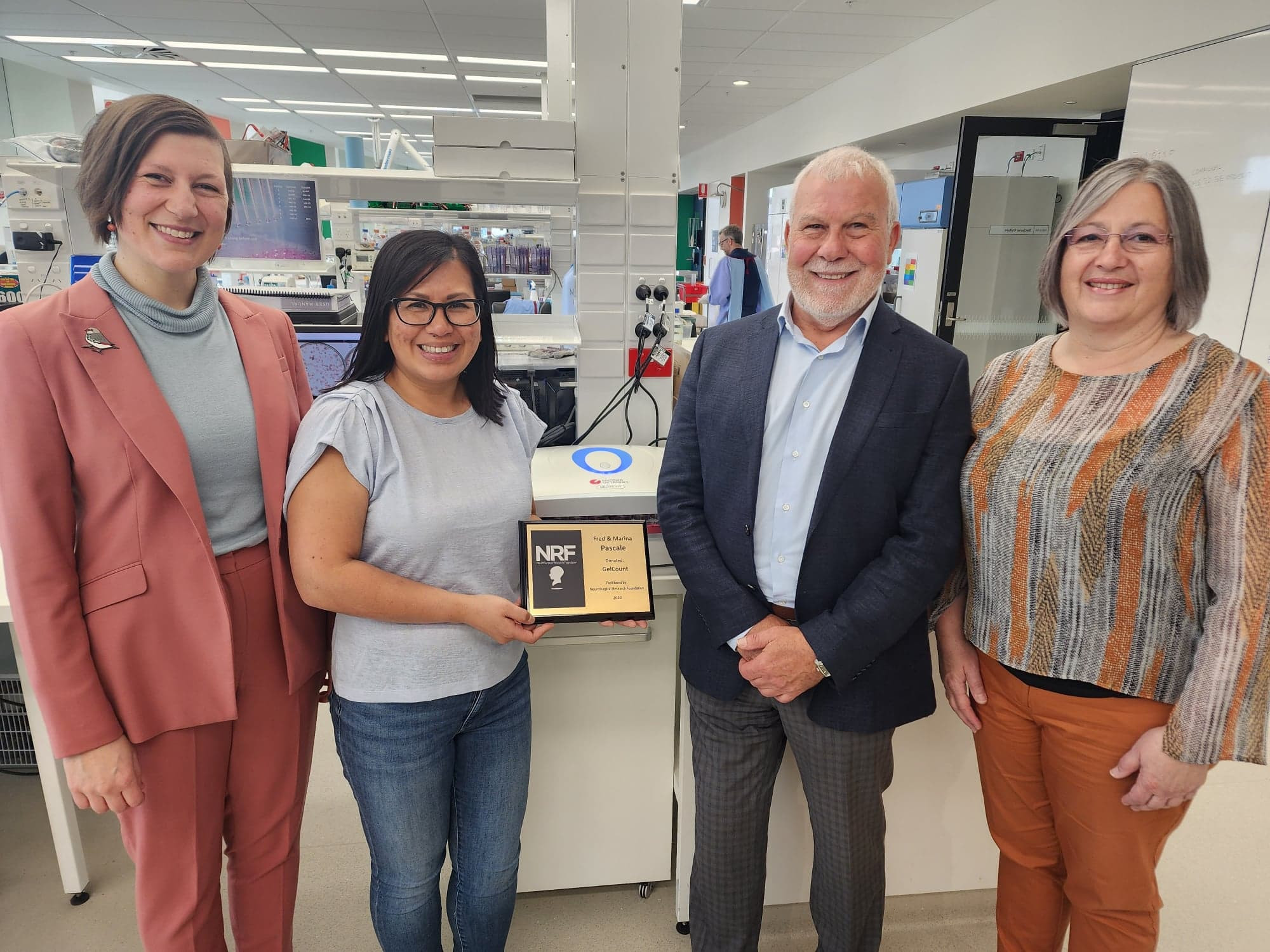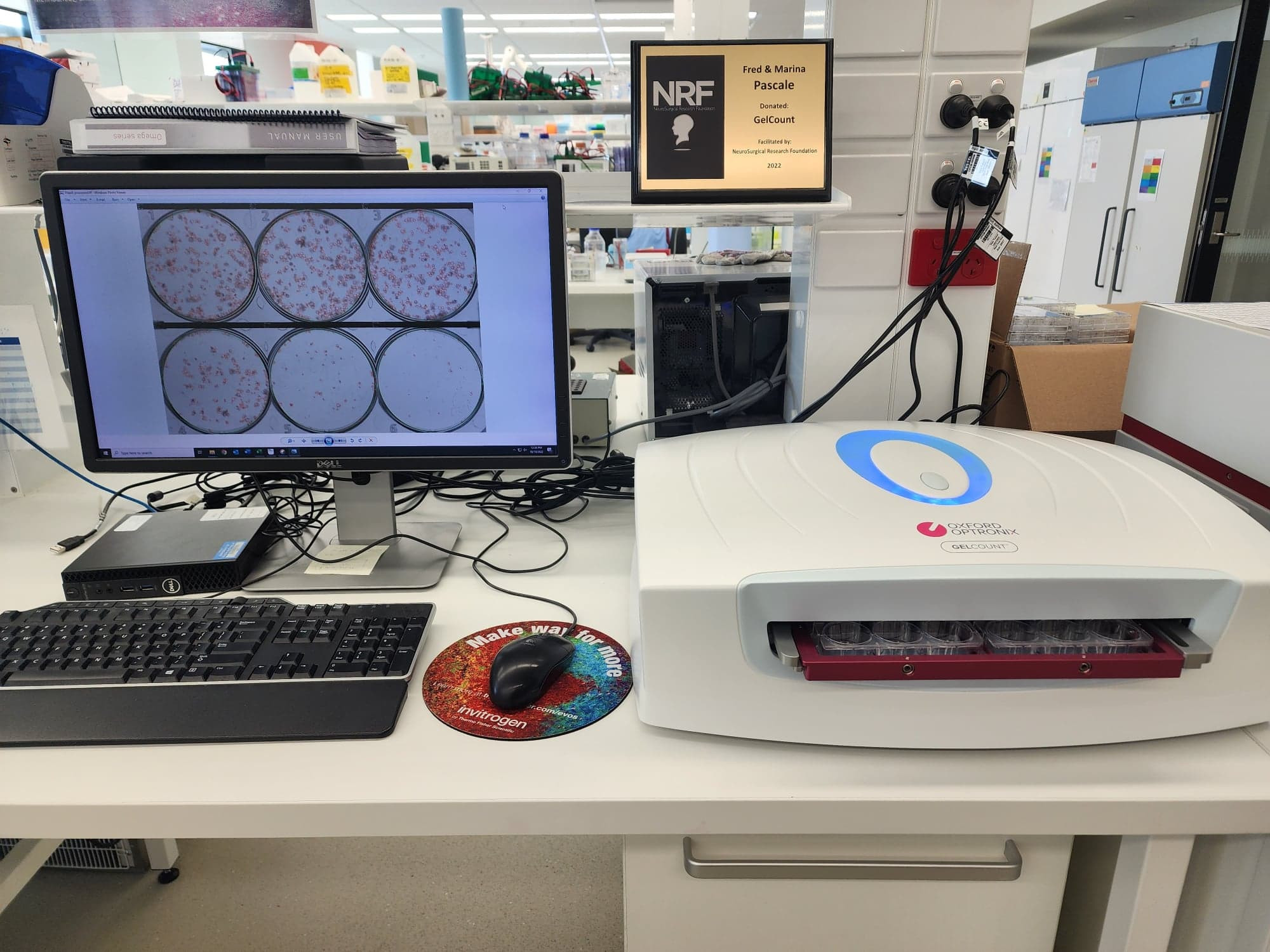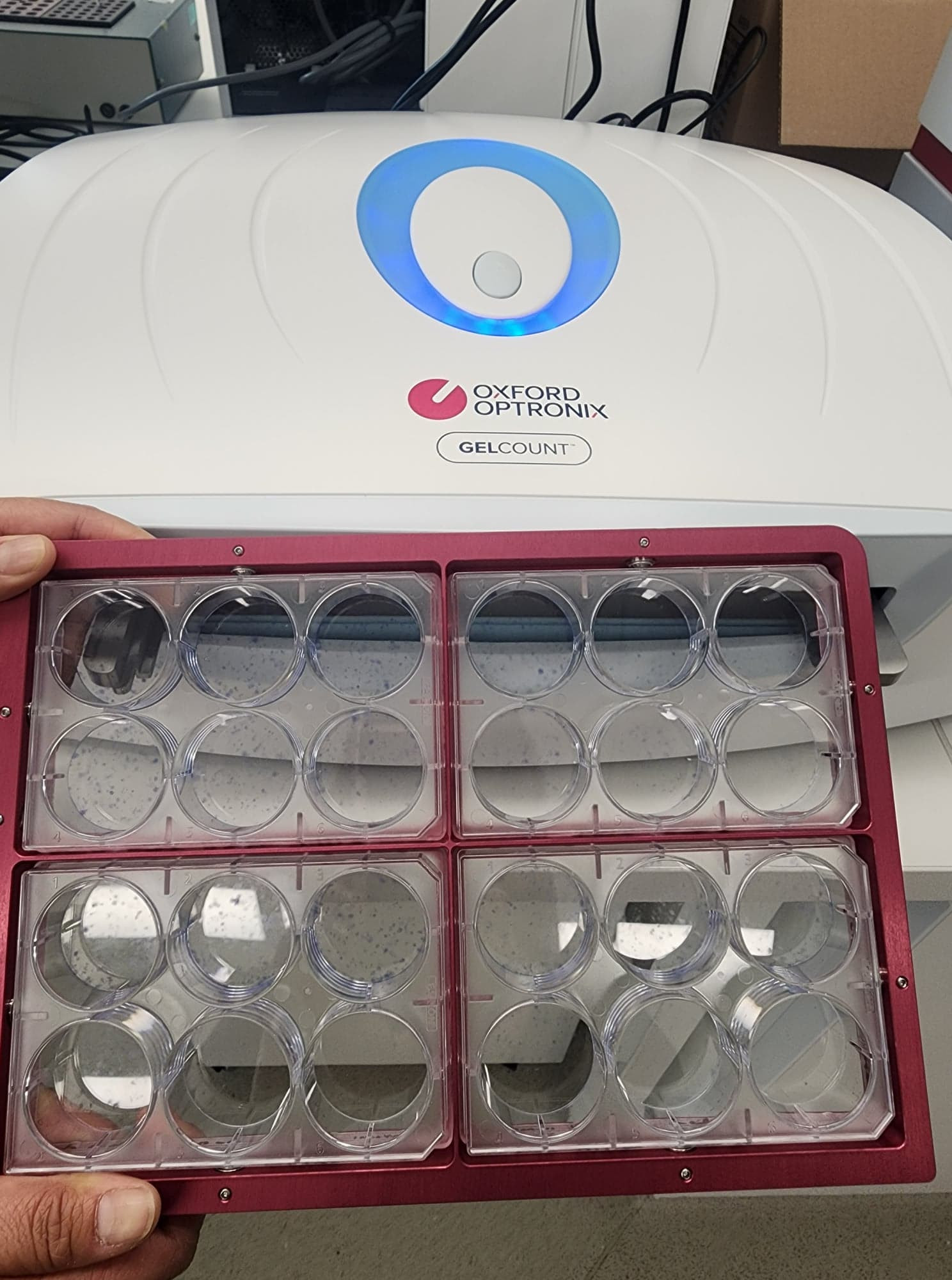New equipment means faster research at the Centre for Cancer Biology
Brain cancer research capacity soars at the Centre for Cancer Biology thanks to new $50,000 GelCount equipment, purchased with a generous donation from Fred and Marina Pascale.

Thanks to Fred and Marina Pascale, a new $50,000 GelCount automated counting and analysis platform is increasing research productivity and capability in the Molecular Therapeutics Lab at the Centre for Cancer Biology (CCB).
.png)
In 2014 Fred and Marina’s daughter Cecilia was diagnosed with an oligodendroglioma in her left frontal lobe. After undergoing a successful operation with Dr Nick Vrodos she required no further treatment except regular checkups until March 2020. Cecilia suffered a seizure while grocery shopping and it was discovered that her tumour had changed to a grade 3 anaplastic astrocytoma. Following another surgery, radiotherapy and chemotherapy, Cecilia is now living with her diagnosis, and is herself a dedicated fundraiser for the NRF.
“I am keen on fundraising for the NRF – to support research into the discovery of new and better treatments. I know there is lots of work to be done to improve quality of life outcomes for brain tumour patients. If I donate the money, either I will benefit, or others will benefit, or both. And the researchers really need that money to get those outcomes.”
Fred and Marina have a long-standing relationship with the NRF, and wanted to find out how they could do even more to support the cutting-edge research occurring in South Australia, and potentially help other patients and families going through a similar situation. Thanks to their generous donation, the Centre for Cancer Biology is now home to the only GelCount machine in South Australia, and one of only three in Australia.
On Tuesday 18 October, Professor Stuart Pitson and Dr Mel Tea welcomed Fred, Marina and Cecilia into the CCB Molecular Therapeutics Lab to thank them and provide a live demonstration of the GelCount in action. Both expressed their extreme gratitude to the Pascale’s, and the incredible difference the machine will make to brain tumour research in SA.

To assess the effectiveness of potential new cancer drugs, researchers measure how they impact the cancer cell’s ability to grow. This is done in the lab utilising patient cell lines derived from tissue donated to the SA Neurological Brain Tumour Bank. Previously, this cancer cell growth was quantified manually by a researcher sitting and counting each cell colony, a subjective and very time-consuming process. The GelCount equipment automates this process, significantly reducing the time required to screen new drugs, meaning that it will both accelerate existing research projects and permit screening of additional new brain tumour therapies that would not previously have been feasible.
The GelCount analysed 24 wells containing cancer cells treated with different drugs in less than 8 minutes, exporting data directly to Excel for analysis. Once completed, results can be analysed independently without requiring direct access to the machine, further streamlining drug screening across multiple projects and research teams. In addition to saving time, all imaging is stored so analysis parameters can be updated and rerun with the click of a button, without the need to manually recount cell colonies.

The GelCount will support the numerous world-class brain tumour research projects currently occurring within the CCB and the Adelaide Biomedical Precinct, promoting collaboration and potentially leading to faster translation to clinical trials. Due to its ability to test multiple drug combinations in a much shorter time frame, it can also be utilised in other cancer research, without impacting brain cancer research output.
The NRF would like to thank Fred and Marina Pascale for their generous donation, which will streamline brain cancer research in SA and help researchers discover better treatments and improve outcomes for brain tumour patients.




